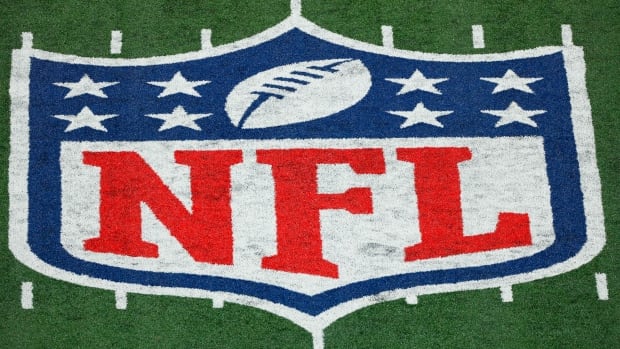
Researchers from the University of Regina are getting more than $500,000 US from the National Football League to study the potential of using cannabinoids for the prevention and treatment of concussions.
Cannabinoids are the naturally occurring compounds found in the cannabis plant.
The NFL-NFLPA Joint Pain Management Committee, which said it wants to better understand and improve potential alternative pain management treatments for NFL players, put out a request for research proposals in June 2021.
The NFL said the U of R study is one of two to be awarded funding out of 106 submissions from top clinicians and researchers from around the world.
A study at the University of California San Diego that will be evaluating the effects of cannabinoids on pain and recovery from sports-related injuries in elite athletes is also receiving funding.
“We are grateful that we have the opportunity to fund these scientifically-sound studies on the use of cannabinoids that may lead to the discovery of data-based evidence that could impact the pain management of our players,” NFL chief medical officer Dr. Allen Sills said in a release.
The U of R study will be led by Patrick Neary, an exercise physiologist and professor in the faculty of kinesiology and health studies, who has been working in the area of concussion prevention and treatment for more than 15 years.
Neary said his team’s selection by the NFL was “extraordinary, overwhelming news” and “a very, very humbling experience.”
Looking for optimal CBD/THC formulation
His team will try to optimize the formulation of cannabinoids such as tetrahydrocannabinol (THC) and cannabidiol (CBD) for pain management in those suffering from post-concussion syndrome and chronic pain, and for a neuroprotective treatment for concussions.
He expects their CBD/THC formulation to show significant and positive changes to the brain that will reduce pain and use of prescription medications, such as opioids, and reduce concussions during athletic competition.
It will be “really exciting” to see whether the formulation they’re working on can reduce the incidence and/or the severity of concussions, he said.
Neary said when a person gets a concussion, there are chemical changes that are occurring in the brain to try and help it rehabilitate and recover from the trauma that it’s gone through.
With the disruption in the cells in the brain, there will often be an influx of more chemicals than are needed initially and that creates inflammation, he said.
“We know that CBD is anti-inflammatory, so it can help to reduce the inflammation while still allowing the brain to recover from those good chemicals that are coming in,” he said.
“So that’s the whole premise here. Can we use CBD? I believe we can.”
Today, the <a href=”https://twitter.com/NFL?ref_src=twsrc%5Etfw”>@NFL</a> announced $1 million in research funding to researchers at <a href=”https://twitter.com/UCSanDiego?ref_src=twsrc%5Etfw”>@UCSanDiego</a> and <a href=”https://twitter.com/UofRegina?ref_src=twsrc%5Etfw”>@UofRegina</a> to study the impacts of cannabis and CBD on the pain management of elite athletes. Learn more: <a href=”https://t.co/riWoOQWYNe”>https://t.co/riWoOQWYNe</a>
—@NFL345
He said another area that his team is going to look at is related to genetics.
“Does your genetics, your DNA, respond to a particular formulation different than mine? And can we then use that to develop individual independent programs for each of us?” he asked.
Wider society outside sports may benefit if theory holds
Neary said the study has the potential to change not only the lives of current and former NFL players, but also the lives of anyone who may suffer from a concussion, whether it’s sport-related or acquired elsewhere.
He said professional athletes represent a “very, very small percentage” of the population that get concussions.
“The majority are recreational athletes,” he said. “People on the playgrounds and out cycling, falling off their bikes, falling off a swing. How can we help them?”
He believes one of the reasons the NFL was interested in his team’s project is because, in Canada, “we have a little bit more latitude as far as the type of research that we can do in this particular area of medical cannabis.”
Neary said they also presented their study as a “multi-disciplinary, integrated, biological psychological” project looking at the whole body.
The Canada-wide team includes physicians, cardiologists, psychologists, pharmacologists, neuroscientists and researchers from other fields at institutions such as the U of R, the University of Saskatchewan, the University of British Columbia Okanagan and the B.C. Children’s Hospital.
The NFL said elite professional athletes outside of the league will be participating in the studies funded under this award, adding NFL players are not permitted to participate.
The CBD and THC for the U of R study are being provided by My Next Health Inc. as part of $400,000 US of in-kind support for the project.
The university said preparatory work for the research will begin right away and the next steps will include obtaining Health Canada approval for the clinical trials.
While it’s a three-year project that is being funded by the NFL, Neary hopes to be able to release preliminary study results by September or October.